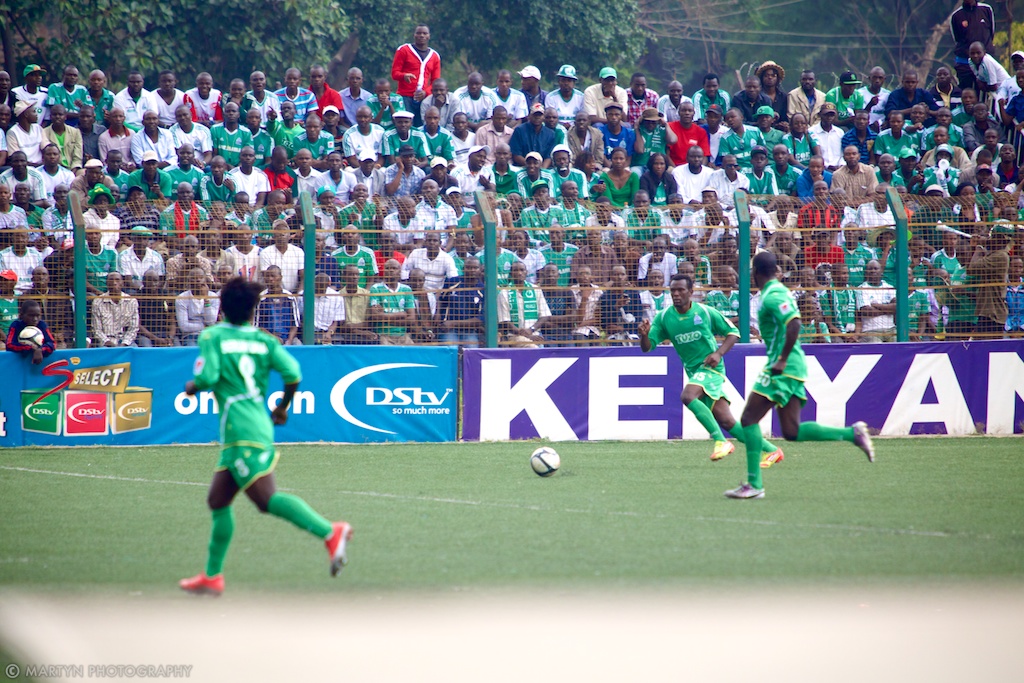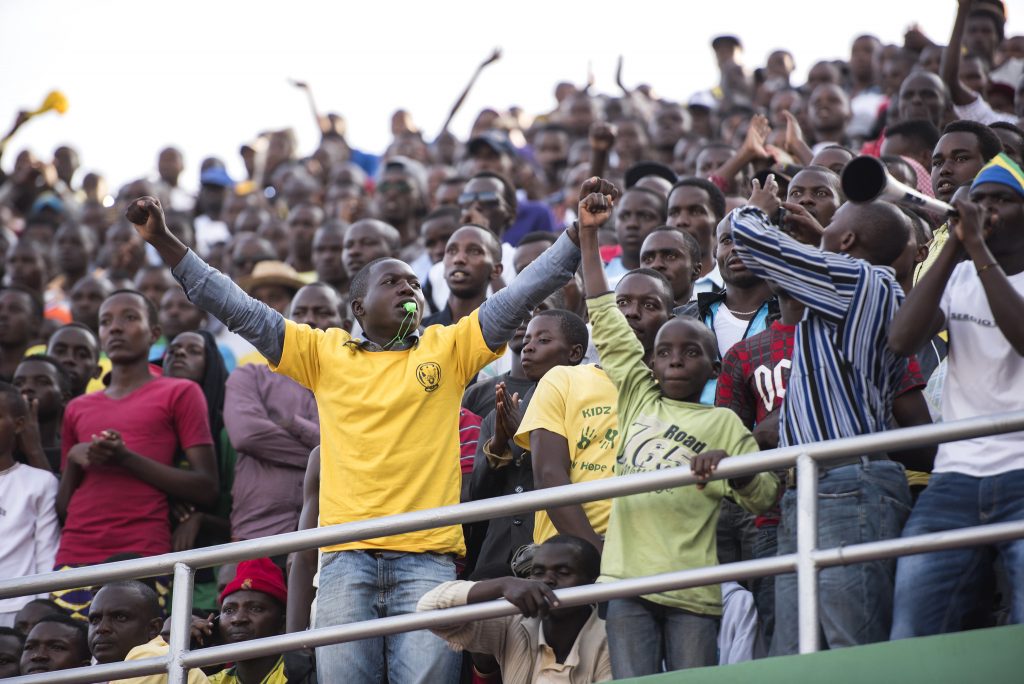
The current pandemic has affected all areas of life, and the sporting world is no exception. Sports activities have been cancelled and rescheduled to fit into the new normal as measures, such as social distancing brought to limit the spread of the coronavirus, have a significant effect on sporting fixtures around the globe. Football being one of the most popular sports in the world, has dramatically felt the pinch of the pandemic.
With this recent change, football teams have had to adjust tremendously in both structural, training, and business strategies. For example, the “work from home” was entirely left in the hands of the individual players to take the necessary measures and stay physically fit. Other teams have taken extra steps to engage their players through video conferencing and webinars to monitor their progress and mental wellness. Social media platforms have become essential, and preferably the only way fans can engage and connect with their favourite teams. Football clubs have had to go the extra mile to create content or replay past games and events that will keep their fans entertained.
The Football Ecosystem
Football is known to be a multi-million-dollar industry with millions of people, especially talented youths, making a living out of it. Many other people benefit from either business transaction in the industry or other connections. The truth is that people make millions and acquire a lot of wealth from football. It is also true that so many people benefit indirectly from the finances in football to survive, say the families of footballers, the beneficiaries of different charity programs ran by football teams and footballers, or the community that gets proper infrastructure due to football events and activities. With this in mind, we can understand why the football industry is worth billions of dollars, why players are paid vast sums of money as salaries and transfer fees, and finally, why football is referred to as the ‘world’s game’.
I followed how the recent occurrences and changes after the pandemic had affected normal activities and the halt of live games. Football clubs make money because they play on the field to entertain fans and to compete for a prize. The lack of live matches means fewer revenues streams and less relevance. Therefore, clubs have had to go back to the drawing board and think of a strategy to either generate income with the current situation or save money to avoid making losses. The most obvious approach that was employed by many clubs around the world was to reduce salary expenses. That meant that players were requested to give up a percentage of their regular salaries. In Europe, this strategy was approached with caution due to the sophisticated player contracts and the legal issues involved. But let us pull our attention to my motherland, Africa.
The Talent Mine
Africa is one of the continents that is regarded as a gold mine for football talent. Several football agents from top clubs flock the continent searching for the football stars. Their job is usually effortless as they are always spoilt for choice. But even with the abundant talent we have and all the attention we get from the football giants in Europe, the African football industry is struggling. Only a handful of the leagues in Africa can sustain themselves and provide a meaningful livelihood to the youths across the continent. Many clubs, even in the top leagues in Africa, do not have financial freedom.
Several factors have been pointed out as reasons for the slow development of the economic and financial situation of the football industry in the continent. But with all the talent and brains, we ought to be somewhere. Although not at the level in Europe or other continents, Africa’s football industry can be much better than it is now.

Recently, I felt quite hurt by the stringent measures taken by many clubs across the continent. In my home country Kenya, more than half of the topflight clubs suspended salaries for their players after the Coronavirus pandemic hit. I have no right to point a finger, and I’m not blaming the management of these clubs. Maybe they are not able to sustain the salaries. Perhaps they have plans for the future or perhaps it is a decision of the sponsoring entities involved, considering many clubs are run by corporate companies (another unfortunate model employed in African football). But what happens to the players who must live and provide for their families? Why do they have to live with uncertainty every time financial decisions are made? The answer is simple. African clubs do not make enough money as they should; they are not as enthusiastic as those in other regions of the world.
Look at the world’s richest football league, the English Premier League. More specifically let us focus on broadcasting and media rights. The premier league clubs get a chunk of their annual revenues from broadcasting rights. Two local channels (BT sports and Sky sports) and more than 30 international channels pay vast sums of money to air English top tier matches. The intriguing part is the structure of payment which is well planned and thought through to enable each team to get a deserving piece of the cake. First, each team gets an equal amount from the Premier League referred to as ‘equal share’. Then we have the ‘Facility fee’ which is paid out to teams according to the number of live matches broadcasted in the entire season. Thirdly, they have a ‘merit fee which is distributed according to the position of each team in the league table. Next, they have the ‘International TV rights’ coming from the broadcasting of the Premier League matches by Channels outside of the UK. Lastly, there are the ‘Central commercial revenues’ shared equally, and it is money generated from advertisements and promotions in the entire league. In the season 2018-2019 Huddersfield received the least amount of approximately £96,000,000. Remember, clubs have their commercial revenues like ticket sales, merchandise, transfer fees, Image rights, sponsorships, and many others. La Liga in Spain has a slightly different structure from this but still makes a lot.
If this is the ideal scenario, if every league is racing to beat the premier league in terms of revenues, then it means Africa has not taken off yet. With the current operations and practices happening in African football, those figures will take us ages to realize. We can not compare with the European football market, neither can we commercialize our football industry like theirs immediately, but we can start from somewhere.
There are efforts from several leagues and clubs to try and copy some of these models. Al Ahly SC of Egypt, for example, has their TV channel called Al Ahly TV that airs the club’s matches and bought rights for showing English Premier league matches one hour after they commence. And we all know how well the football league in South Africa is developing into a multi-million industry and attracting the cooperate world to invest and sponsor their league. But still, more must be done. African football leagues and clubs need to be aggressive to commercialize the industry and take it to the next level.
One question I always ask people is why European football is so prevalent in Africa, why would we drop everything in our schedule to watch those big teams in Europe. I get very many answers ranging from infrastructure, quality, entertaining, flashiness, etc. I agree with all these answers, but I can argue them out as not being the reasons why we chose European football over ours. We have some great stadiums in Africa, of course not as the ones in the Western world. We do have quality talent, we can shoot high-quality live matches, our football is entertaining at times, and we do have some local fans who would love to watch local games not only in the stadium but on TV.
People watch a lot of European football because it is highly available. No one ever struggles to watch a premier league match or a Bundesliga match or any other top league game. They are always there and easily accessible. Markets are flooded with jerseys from various European teams, which have a massive presence on social media with up-to-date information about the matches and the players. They trigger people’s passion for football. They use the “you want it, you get it” approach. Why would thousands of fans, after watching a thrilling El Classico match (Real Madrid Vs Barcelona) stay up late to follow a Levante Vs Granada game (with much respect to these teams)? Or why would fans after watching the London derby of Arsenal vs Tottenham still sacrifice their sleep to watch a Sheffield vs Aston Villa game? Its because people want to watch football. The ‘get it when you want it’ approach has worked for the Western world, and it is evident that that’s the reason they are so successful because they have a following and they are able to monetize that.
African clubs are not far off. They can catch up and consolidate their following. In my home country Kenya, it is close to impossible for a fan to watch a local game unless you go to the stadium. I remember sitting in an IT class, and the Lecturer taught us about the ‘two-click rule’. If a user in a system must go through more than two steps to get information, then the system is not user friendly. If fans must struggle to search everywhere for local games, when they cannot watch the matches from their preferred comfort, they will look for the available alternative. They do get the choice in the top leagues of the world which, though expensive, will always be available for them anytime.
Many say we are short of resources. I say we start and get them as we move. Yes, we have solutions for connecting with our fans, create a following, and build a brand. We can not get the lucrative broadcasting rights like European clubs; we cannot be on the same commercial level, football-wise. But if we start small and use the basics at our doorsteps, we can grow big in no time. Africa will be a giant in football.

I have focused a lot on the financial side of football, which is where I’m most conversant. However, I must highlight that it is not all about money. It’s about avoiding something similar to brain drain, where we lose talented and skilled people to foreign countries, only because they feel their talent is wasted should they stay back home. If football thrives in Africa as a valued and readily available form of entertainment, as well as a profession through which one can sustain his family and build his community, then it will no longer be looked at merely as a springboard to greener pastures in Europe. African footballers will be proud to play for Africa, in Africa, and to entertain the world from Africa.
Isaya Ogumbe is a volunteer at The Football Foundation for Africa, which is working towards creating a sustainable business model for African football. He works as an ICT Support intern at Strathmore University, where he recently graduated and played football for the University team. This article was initially published in mecartornet.com.
 Back to Blog
Back to Blog 







